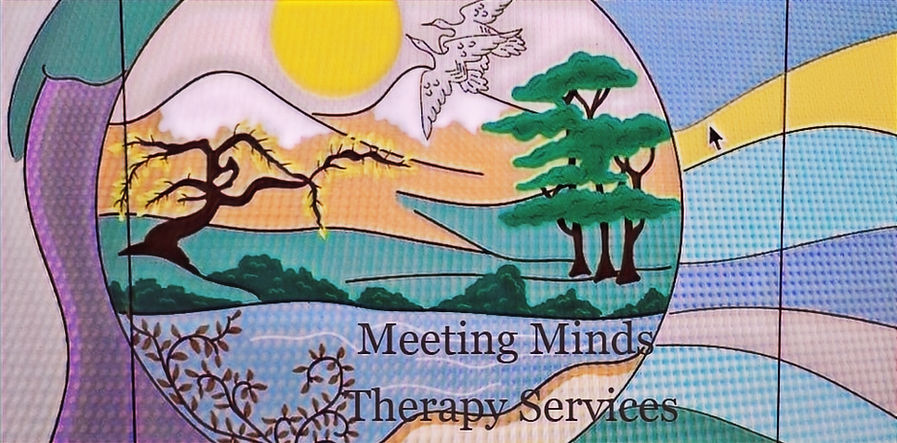The Lies We Tell Ourselves: How Therapy Helps Us Face Unhappiness
- Lyn Reed
- Jun 29, 2025
- 4 min read
In moments of unhappiness, it’s tempting to trick ourselves into believing everything is okay.
We create stories that hide the truth, pulling us farther from real understanding and healing.
Self-deception—whether it’s downplaying our feelings or avoiding tough emotional confrontations—can lead to a damaging cycle of despair.
Therapy provides a safe environment where we can face these inner lies head-on and work towards a more positive mindset and emotional well-being.
The Nature of Self-Deception
Self-deception is a mental defence mechanism we use to protect ourselves from painful truths.
It often shows up as denial, rationalisation, or trivialising our genuine emotions.
When unhappy, we may feel the urge to push feelings aside rather than address them openly.
For example, someone who has lost a love might repeatedly tell themselves, "I didn't love them anyway."
This kind of thinking serves to shield individuals from sadness and disappointment. Accepting our emotions can be tough, but it is necessary for genuine growth.
Recognising these deceptive thoughts is the first step in changing our emotional patterns. By seeing these lies as temporary fixes for deeper issues, we can confront them more effectively.
The Impact of Denial on Mental Health
Staying trapped in self-deception can have serious consequences for our emotional health.
When we deny our feelings of unhappiness, we miss out on opportunities for personal growth and healthy emotional expression.
For instance, studies show that people who repress negative emotions are 30% more likely to develop anxiety or depression.
Ignoring our emotional needs often turns small issues into larger, more complicated problems. In this sense, denial becomes a barrier to our well-being.
By acknowledging our feelings, we can break the cycle of self-deception and start taking back control of our lives.
How Meeting Minds Can Illuminate the Path to Reality
A skilled therapist can help individuals navigate the challenging road to confronting self-deception.
With support and tailored techniques, therapy creates a space for clients to explore their true emotions without fear of judgment.
In therapy sessions, clients learn that it's perfectly acceptable to feel unhappy.
Meeting Minds Therapy Services encourages clients to express challenging emotions and slowly unpack the narratives they've built around their experiences.
For instance, a client struggling with loss might discuss memories of happier moments, allowing them to process grief rather than bury it.
By challenging distorted thinking patterns, clients can reshape their perspectives and develop healthier coping strategies.
One study found that good therapy that gets to the heart of things can reduce symptoms of anxiety and depression by 40-60% within a few months.

The Role of Self-Reflection in Therapy
Self-reflection is a vital part of the therapy process. It allows clients to examine their thoughts and feelings with purpose..
As clients engage in conversations with their therapists, they begin to unearth patterns of self-deception.
Therapists might suggest activities like journaling or mindfulness meditation as valuable self-reflection tools. These practices enable clients to pinpoint their emotions, assess their thoughts, and uncover the truths behind their situations.
For example, a client might journal about a negative interaction and later realise their reaction stemmed from past fears rather than the present moment. This insight can be empowering, allowing clients to reclaim ownership over their ow stories.
Confronting the Root Causes of Unhappiness
In therapy, tackling the root causes of unhappiness can be eye-opening.
Clients may unearth beliefs about themselves that fuel their emotional distress. For instance, someone raised to believe their worth is tied to professional achievement might feel worthless when they face setbacks at work.
Working alongside their therapists, clients can identify these triggers and start questioning the beliefs that lead to self-deception. As they confront these root issues, they gain the power to reshape their stories instead of staying victims of circumstance.
Building a Supportive Environment
Therapy is more than just facing uncomfortable emotions; it’s also about fostering a supportive atmosphere. A good therapist serves as a guide, providing empathy and understanding.
A solid therapeutic alliance builds trust, allowing clients to feel safe while exploring their truths. Clients must have a space where they can share their feelings honestly and receive guidance that helps them navigate their emotional terrain.
Developing a positive relationship with a therapist creates a foundation for open dialogue and constructive feedback. These elements are essential for confronting one’s inner truths.
Moving Towards Healing
The journey of facing our inner lies is challenging, yet therapy can be instrumental in facilitating healing. With support and introspection, people learn to embrace their emotions, opening doors to authentic connections with themselves and others.
As clients shed layers of self-deception, they often feel a sense of relief, less weighed down by the falsehoods surrounding their emotions. The process can be testing, but the rewards for personal growth are vast.
A Path to Authenticity and Emotional Health
In searching for happiness, facing our inner lies is essential. While the road to emotional health may be filled with uncomfortable truths, therapy offers a unique space for exploration, reflection, and healing.
By acknowledging our unhappiness rather than avoiding it, we can unlock a multitude of opportunities for growth and fulfilment.
With the right support, we can learn that happiness is not only about the absence of pain but also about accepting all facets of our emotional journey.
Therapy empowers us to confront our realities, reject our self-deceptions, and ultimately find deeper peace within ourselves.
Navigating life's challenges reminds us that seeking help is not a weakness but a brave step toward healing.
Embrace this journey; confronting our inner lies guides us to profound truths.




Comments